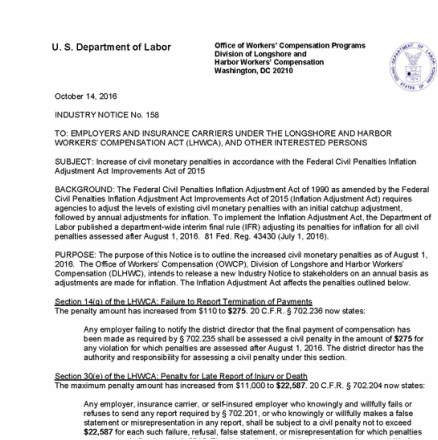|
Certain penalties under the Longshore Act have increased effective January 2, 2018. The penalty under Section 14(g) of the Act, for failure of an employer to report the termination of payments, has increased to $285 from $279. The penalty under Section 30 for failure to report an injury now has a maximum penalty of $23,426, up from $22,957. In assessing this penalty, the District Director may consider certain aggravating or mitigating factors, and may rely upon a graduated schedule of penalty amounts. Finally, the penalty under Section 48a, for discrimination against employees who bring compensation proceedings, ranges from a maximum of $11,712 and a minimum of $2,343. These increases were prompted by the Federal Civil Penalties Inflation Adjustment Act Improvements Act of 2015, which requires agencies to adjust the levels of existing civil monetary penalties annually based on inflation. The Division of Longshore and Harbor Workers' Compensation of the Department of Labor provided notice of these increases in Industry Notice 163, which may be viewed here.
0 Comments
|
Categories
All
© 2018 Ira J. Rosenzweig
|

 RSS Feed
RSS Feed
